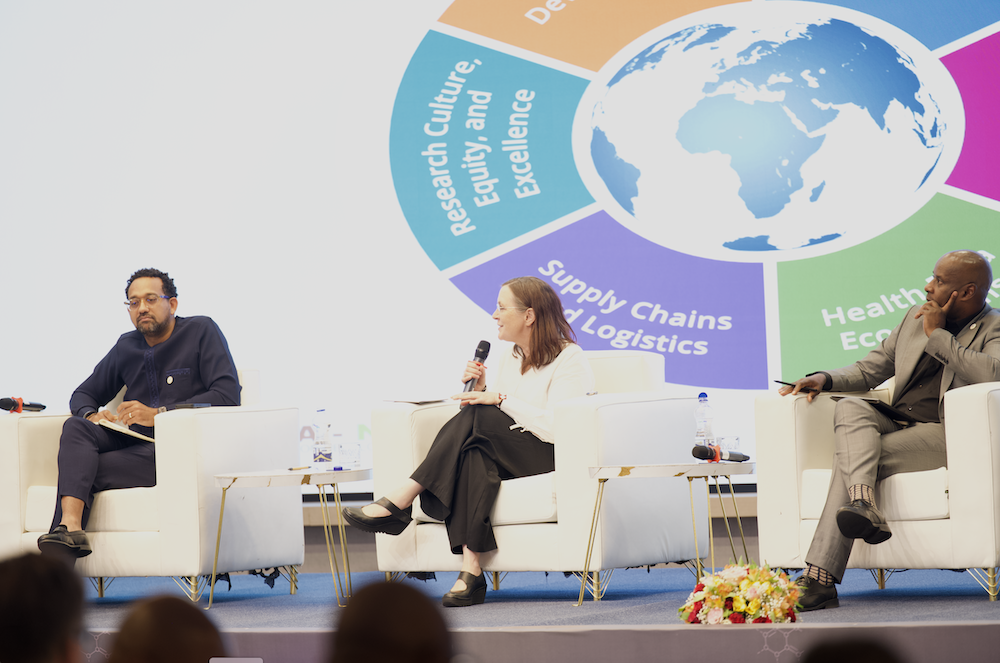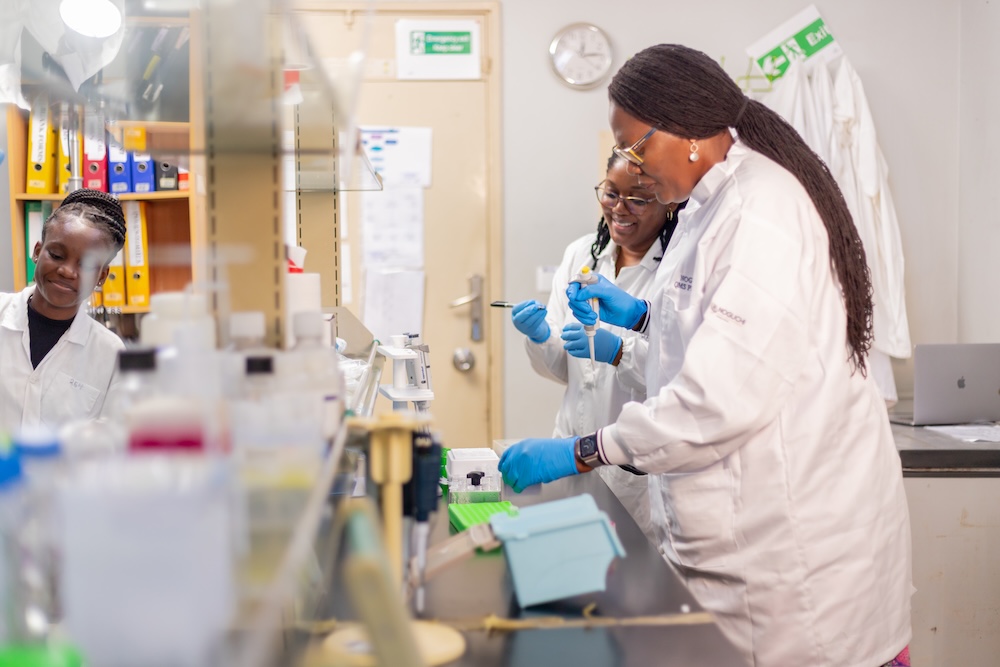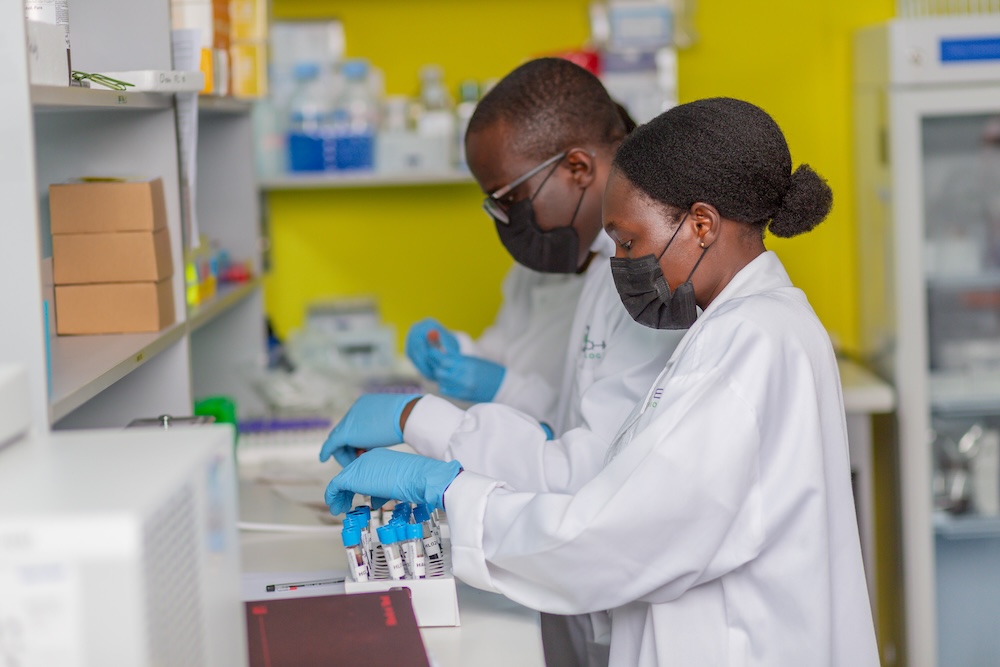
Media Centre
Funding the research and development of new and preferred contraceptives
Monday, October 24, 2022

The Science for Africa Foundation (SFA Foundation) is funding the research and development of new contraceptives that are easy to access and to use.
A funding call, ‘Strengthening Contraceptive Research and Development (R&D) Ecosystem in Africa: Accelerating Innovations in Non-Hormonal Contraception for Women’ will run over a period of two years through the SFA Foundation’s Grand Challenges Africa (GC Africa) programme. The funding was announced today at the Grand Challenges Annual Meeting in Brussels, Belgium.
Almost half of the pregnancies in low- and middle-income communities, 111 million annually, are unintended with over 75% occurring among women who seek to avoid pregnancy but fail to do so due to lack of access to modern contraceptive options. Where women can access the contraceptives, the side effects brought on by the hormones used to develop them including bleeding changes— longer/heavier periods, spotting between periods, and amenorrhea— have led women to discontinue their use.
SFA Foundation partnering with the Bill & Melinda Gates Foundation will aim to provide up to $350,000 to multidisciplinary consortia consisting of 2-3 researchers preferably based in the same institution to develop novel non-hormonal contraceptives that are safe, effective, easy-to-access, discreet, convenient, do not contain sex steroid hormones or rely on hormonal mechanisms and do not disrupt menstrual patterns. A component of behavioral research must be included so the contraceptives consider the needs, preferences, and aspirations of young girls and women to increase the likelihood of their use.
“When a young girl or a woman can use contraceptives, it empowers her to plan her life, family, and future accordingly and be able to invest in her own goals and in each of her children, which is essential to break the cycle of poverty. This really is a women empowerment programme that is being delivered by harnessing the power of science,” said Moses Alobo, the GC Africa Programme Manager.
Additionally, the funding seeks to expand the capacity for scientists and institutions to conduct contraceptive R&D and to build and strengthen the contraceptive R&D network on the African continent by encouraging intra-institutional and intra-Africa collaborations.
The R&D contraceptive funding will be given to:
- Scientists with long-term partnerships within their institution or other institutions that are multidisciplinary, including those new to the field. For new partnerships, plans to maintain a productive collaborative relationship should be outlined.
- Consortia led by Principal Investigators (PI) and based in African research, academic or for profit led institutions.
- Enhance the research ecosystem for contraceptive R&D and strengthen the contraceptive R&D network on the African continent.
- Demonstrate at least 90% of the funding is going to an African lead institution and plans innovative concepts, methods or technologies not necessarily currently being used for contraceptive R&D.
- PI based in an African academic institution, research centre, non-profit organisation and for-profit organisation. Other global partners may be included.
- Women-led projects and organisations are highly encouraged to apply.
Further information for applicants:
- All applications, supporting documents should be submitted in English.
- This is a 2-stage application process that will begin with the submission of a Letter of Inquiry (LOI) to the SFA Foundation – Grand Challenges Africa Programme. Eligible applicants will be required to submit a full proposal.
- Proposals should be sent through the SFA Foundation’s Agaseke grants management portal
- Applications close on 16 December 2022.
- For this proposal, ‘Strengthening the Contraceptive R&D Ecosystem in Africa: Accelerating Innovations in Non-Hormonal Contraception for Women,’ please visit the SFA Foundation funding page https://scienceforafrica.foundation/funding/strengthening-the-contraceptive-r-and-d-ecosystem-in-Africa
- For other calls issued by the GC Africa programme or the SFA Foundation, please visit the SFA Foundation opportunities webpage Scienceforafrica.foundation/funding
- Enquiries can be emailed to [email protected] with responses to enquiries shared on Monday – Friday from 0800hrs – 1700hrs EAT.
About the Science for Africa Foundation
The Science for Africa Foundation (SFA Foundation) is a pan-African, non-profit and public charity organisation that supports strengthens, and promotes science innovation in Africa. The goal of the SFA Foundation is to address the continent’s most pressing developmental needs by generating scientific knowledge that solves problems and informs decision-making. Grand Challenges Africa (GC Africa) is a programme of the SFA Foundation that manages and supports the creation of extraordinary innovations that address health and developmental challenges in Africa. The programme awards seed and scale up grants to the continent’s most impressive solutions .
Follow us on Twitter SciforAfrica | LinkedIn SFAFoundation | Website scienceforafrica.foundation/



